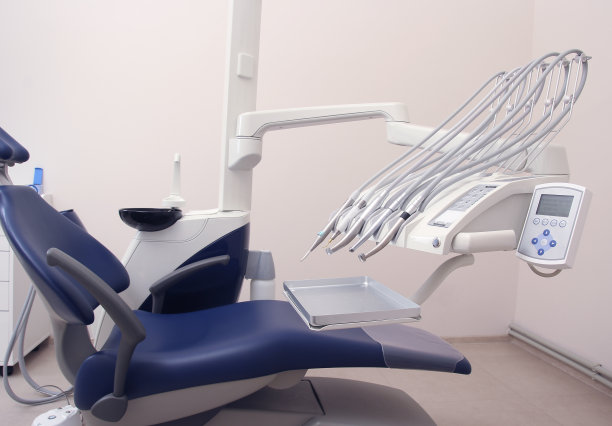Summary: After receiving a dental filling, patients may feel uncertain about the aftercare processes that lead to optimal recovery and the longevity of their treatment. This article outlines essential guidelines to follow post-procedure, focusing on pain management, dietary modifications, oral hygiene practices, and follow-up care. By adhering to these guidelines, patients can enhance their healing, maintain the integrity of their fillings for an extended period, and minimize the risk of complications. Each guideline is thoughtfully crafted to empower individuals with the knowledge they need to ensure a smooth recovery journey following their dental treatment.
1. Effective Pain Management Strategies

Post-filling, it is common to experience some discomfort as the anesthesia wears off. For effective pain management, over-the-counter pain relievers such as ibuprofen or acetaminophen can be beneficial. Always follow dosage instructions carefully and consult your dentist if the pain persists beyond a few days.
Applying a cold compress can help alleviate pain as well. Placing a cloth-wrapped ice pack on the outside of your cheek for 15-20 minutes can reduce swelling and numb the area, providing immediate relief.
If the pain is severe or accompanied by other symptoms like swelling or fever, it is important to reach out to your dentist without delay. These may indicate underlying issues that require prompt attention.
2. Dietary Modifications for Recovery
After getting a dental filling, it is crucial to be mindful of your diet during the initial recovery phase. For the first 24 hours, stick to soft foods to avoid putting undue pressure on the filling. Foods like yogurt, mashed potatoes, and smoothies can be excellent choices.
Avoid hot, hard, or sticky foods as they can irritate the filling area and increase the risk of damage or dislodgment. Additionally, refrain from consuming alcohol or very hot drinks, as these can exacerbate sensitivity.
Once the initial recovery period has passed, you can gradually return to your regular diet. Always listen to your body and proceed with caution, especially if you notice any sensitivity or discomfort when eating specific foods.
3. Importance of Oral Hygiene Practices
Maintaining excellent oral hygiene is critical following a dental filling. Gently brushing your teeth twice a day while avoiding the filling area for the first couple of days is essential to prevent aggravation. Use a soft-bristled toothbrush to minimize discomfort during this time.
Flossing is equally important, but be gentle around the filled tooth to avoid displacing the filling. Consider using a waxed floss, as it is less likely to catch on any rough edges.
Consult your dentist about appropriate mouth rinses or antibacterial solutions to use post-procedure. Regular cleanings and adherence to prescribed hygiene routines can help in maintaining the longevity of your dental work.
4. Scheduling Follow-Up Appointments
Follow-up care plays a vital role in ensuring your dental filling is performing well. Your dentist will typically recommend a follow-up appointment within a few weeks after the procedure. This allows for an evaluation of the filling and helps address any issues that may arise.
During follow-up visits, be sure to discuss any concerns you may have, including sensitivity or discomfort. These discussions are crucial in determining the success of the filling and addressing potential complications swiftly.
Additionally, maintaining regular dental check-ups every six months is vital. These visits not only help in monitoring the condition of your filling but also enhance your overall oral health.
Summary: Following a dental filling procedure is essential for maintaining health and ensuring the fillings longevity. Proper pain management, dietary considerations, diligent oral hygiene, and consistent follow-up appointments contribute to a successful recovery. By adhering to these guidelines, patients can avoid common pitfalls and foster a more effective healing process, ensuring their dental work remains intact for years to come.
This article is compiled by Vickong Dental and the content is for reference only.
Vickong Dental
Vickong Dental is a large medical group established in Hong Kong in 2008 by professors from well-known medical universities in Guangdong and Hong Kong, as well as medical doctors from key national '985' universities (including Master's supervisors and senior professors). The chain of branches brings together expert dentists with PhDs and Master's degrees from Hong Kong and Mainland China, committed to providing high-quality dental treatment.
"Vickong Dental Practices the University Motto of 'Healing and Serving Society,' with a Stable Operation for Sixteen Years. It Has Been honored with Hong Kong Enterprise Leaders's Choice,' and is a Global Trusted Implant Center for the Nobel Implant System. Recommended by Hong Kong Metro Broadcast and Guangdong Television, it Serves Customers from Over Thirty Countries and Regions, Gaining the Trust and Favor of Citizens from the Guangdong-Hong Kong-Macau Greater Bay Area and Surrounding Cities.

Thousands of customers' unanimous praise
The most recognized and highly recommended dental service by customers in the Guangdong-Hong Kong-Macau Greater Bay Area
We Ensure You Receive Detailed Care and Attention Here
Hong Kong standards, Shenzhen prices, Your Trusted English-speaking dentists

Vickong Dental Medical-Grade Instrument Disinfection Process
Vickong Dental Medical-Grade Instrument Disinfection Process

Vickong Dental Chain: A Warm and Comfortable Environment for Treatment






Appointment Hours

Q&A
Why choose Vickong Dental?
Vickong Dental practices the university motto 「Medicine to Benefit Society」, with each branch bringing together highly qualified dentists with doctoral and master’s degrees from Hong Kong and the Mainland, and has maintained seventeen years of steady operation。Recipient of 「2024 Hong Kong Enterprise Leaders Brand」, 「2025 Hong Kong Enterprise Leaders Brand」, a Nobel Biocare Global Trusted Implant Center, and a brand recommended by Metro Radio Hong Kong and Guangdong TV。
To date, we have served customers from more than thirty countries and regions,earning exceptionally high word-of-mouth recognition and trusted recommendations from residents across the Guangdong-Hong Kong-Macao Greater Bay Area and surrounding cities
We have eight major branches in Zhuhai、Shenzhen,and a consultation and service assurance center in Hong Kong,so you can book a free consultation at any time for any questions,which is very reassuring.
If I do not accept the quotation after the CT scan, will I be charged??
No! As long as the actual treatment has not started, you will not be charged any fees.
Will there be any additional charges during the treatment process?
No, there won’t be any additional charges. Before treatment begins, we will clearly explain the treatment plan and its corresponding fees. Only after the patient agrees and signs the consent form will we proceed with the dental service.
Can I pay in Hong Kong dollars?
Yes. Vickong Dental accepts payment in Hong Kong dollars. The amount will be converted based on the exchange rate of the day, and the applicable rate will be clearly communicated to you in advance.
Can I reschedule my appointment at any time?
Yes. Please contact us via **WeChat** or **WhatsApp** as early as possible, providing your original appointment time and details, along with your preferred new date and time slot for rescheduling.













